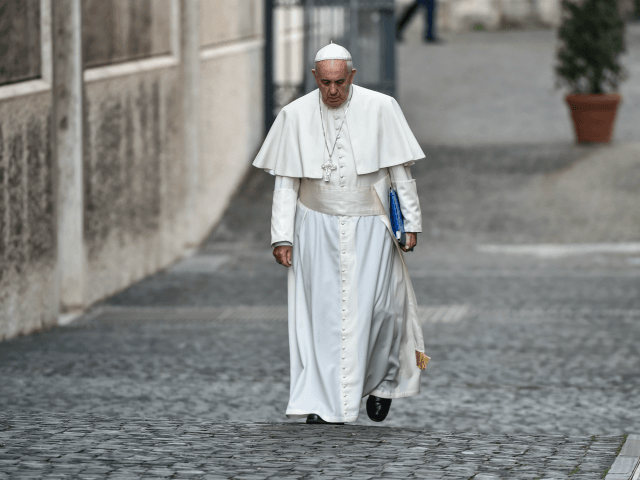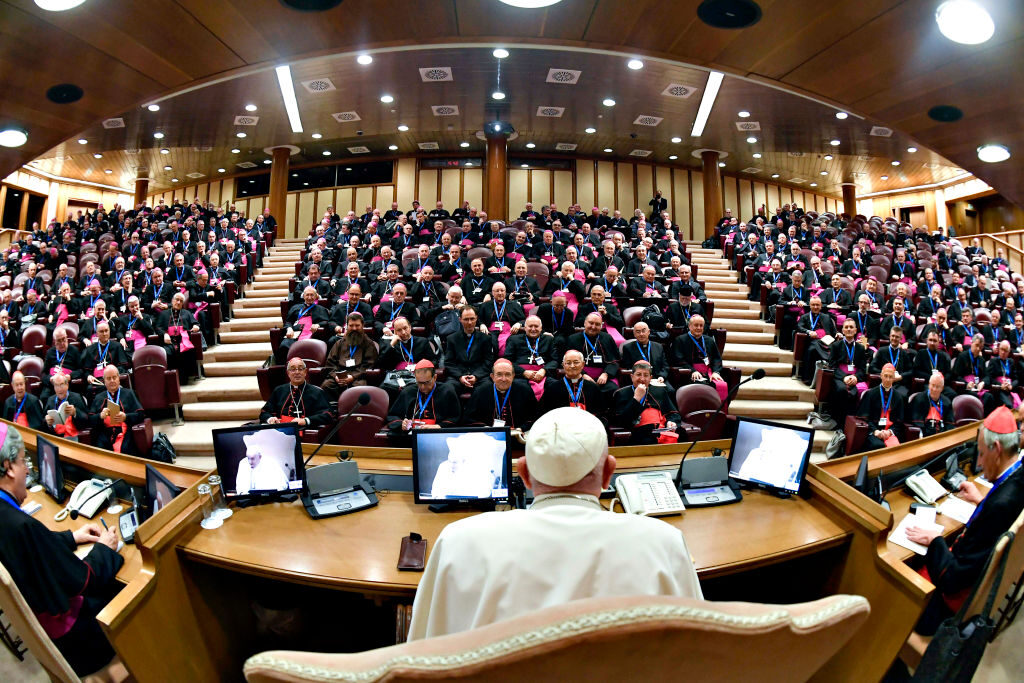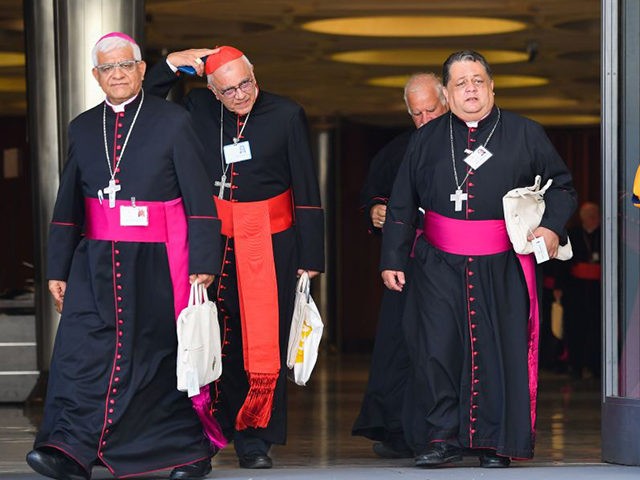ROME — The Vatican announced Tuesday it will generate a carbon credit to offset the climate debt incurred by its upcoming synod of bishops in Rome.
“The General Secretariat of the Synod intends to make its contribution to the conservation of creation by choices that will offset the residual CO2 emissions produced by the upcoming XVI General Assembly of the Synod of Bishops,” the Vatican declared.
Part of the CO2 emissions from the October synod will be offset thanks to “a carbon ‘credit,’ thus balancing the accumulated ‘debt,’” the Vatican statement said.
The statement said that the Vatican will be assisted in this endeavor through the financial support of the SOS Planet Foundation and the technical contribution of LifeGate.
The project chosen to compensate Vatican emissions will entail the distribution of “efficient cooking stoves and water purification technologies to households, communities and institutions” in Nigeria and Kenya, the statement said.

File/Pope Francis arrives for the second morning session of the Synod of bishops on the Family at the Vatican on October 6, 2015. (ANDREAS SOLARO/AFP/Getty Images)
These measures “will significantly reduce the consumption of nonrenewable biomass and fossil fuels for cooking and boiling water,” the Vatican asserted, resulting in “a significant improvement in air pollution that is directly correlated to respiratory disease and mortality rates.”
The project “will use proceeds from the sale of carbon credits to support local partners engaged in the production, distribution and maintenance of the related technologies,” it added.
Pope Francis has been a vocal supporter of the idea of a “carbon tax” and has urged first world nations to pay the “ecological debt” they owe to poorer nations.
In 2019, Francis warned of terrible consequences if humanity does not avert the threat of climate change, since the world has reached a “critical moment” and there is no time to waste.
“A carbon pricing policy is essential if humanity wants to use the resources of creation wisely,” he said at the time. “The failure to manage carbon emissions has produced a huge debt that will now have to be repaid with interest from those who come after us.”
The cost of carbon usage must be paid here and now and not deferred for future generations to cover, he contended.

Pope Francis attends the opening of the 77th General Assembly of the CEI (Italian Episcopal Conference) at the Synod Hall on May 22, 2023 in Vatican City, Vatican. (Vatican Media via Vatican Pool/Getty Images)
“Our use of common environmental resources can be considered ethical only when the social and economic costs of their use are recognized in a transparent manner and are fully sustained by those who use them, rather than by other populations or future generations,” he said.
In April, 2021, the pope said it is time to calculate the “ecological debt” the global north owes to the global south.
We cannot overlook “the ‘ecological debt’ that exists especially between the global north and south,” the pontiff said to participants in a meeting of the World Bank Group and International Monetary Fund.
“We are, in fact, in debt to nature itself,” the pope asserted, “as well as the people and countries affected by human-induced ecological degradation and biodiversity loss.”
“In this regard, I believe that the financial industry, which is distinguished by its great creativity, will prove capable of developing agile mechanisms for calculating this ecological debt,” Francis continued, “so that developed countries can pay it, not only by significantly limiting their consumption of non-renewable energy or by assisting poorer countries to enact policies and programmes of sustainable development, but also by covering the costs of the innovation required for that purpose.”

COMMENTS
Please let us know if you're having issues with commenting.